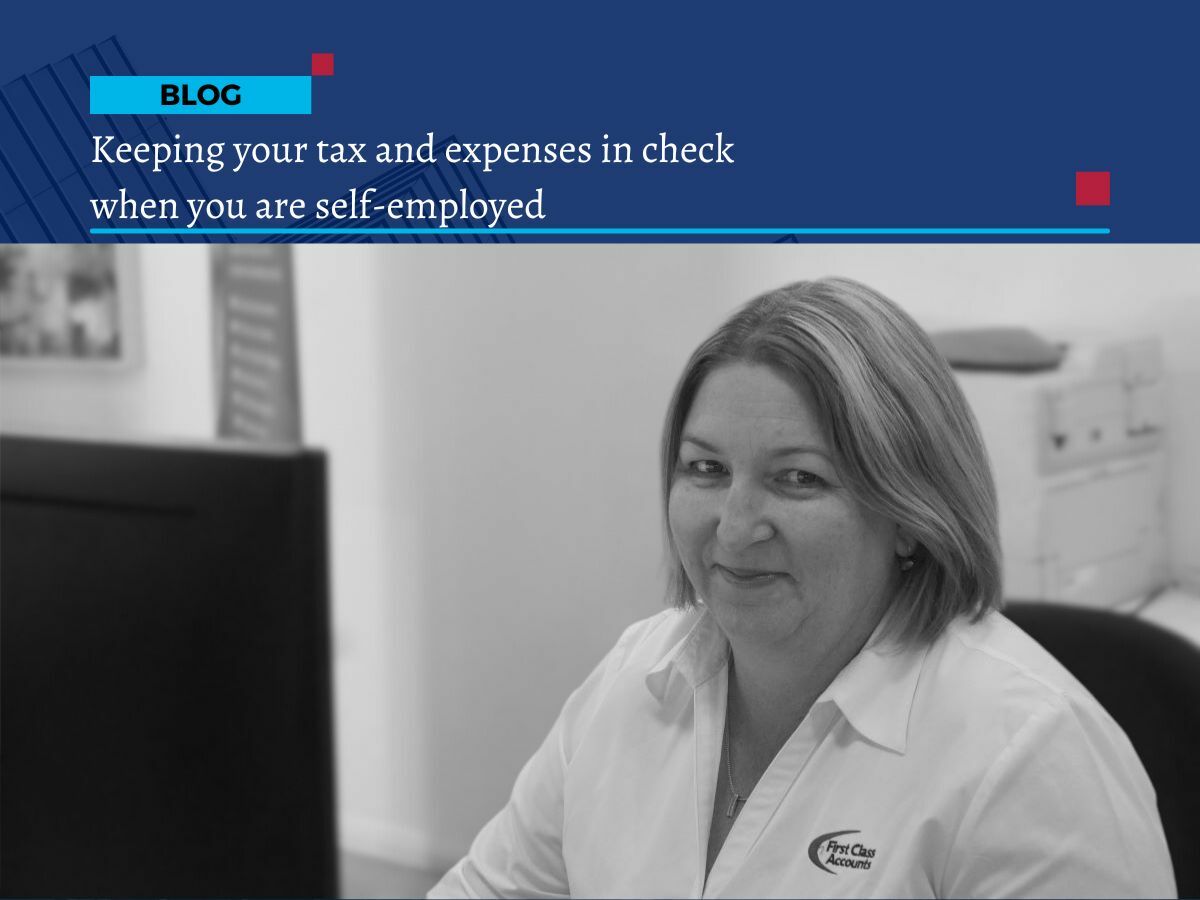
Keeping your tax and expenses in check
Keeping your tax and expenses in check when you are self-employed
Running your own business means juggling multiple roles—building relationships, managing time, marketing your services, and, of course, delivering the work.
However, one critical aspect that shouldn't be overlooked is how you keep your tax and expenses in check when you are self-employed.
Establishing good financial habits from the start will set the foundation for your business’s long-term success. Below, we'll explore key steps to keep your tax and expenses in check, ensuring that you’re on solid ground, especially when the tax season rolls around.
Understand Your Deductions
Knowing what you can and can’t claim as business expenses is crucial.
Every industry has different rules, and what might be deductible for one business may not apply to another.
For instance, if you work from home, you might be able to claim a portion of your home office expenses, such as utilities and internet, but there are specific criteria that must be met. On the other hand, if your business requires travel, those expenses may also be deductible, but only if they are directly related to your work.
It’s easy to miss out on legitimate deductions if you’re not fully aware of what’s available to you. This is where professional advice comes into play. By consulting with us early, you’ll be better prepared to track the right expenses and keep the necessary documentation.
Additionally, understanding deductions isn’t just about saving on your tax bill; it’s about planning. Knowing what you can claim allows you to budget more effectively and reinvest savings back into your business, helping it grow.
Regularly reviewing your expenses with a professional ensures that you are not missing out on opportunities to save and that your financial records are in order when tax time arrives.
Get a System Sorted
One of the smartest moves you can make as a business owner is to set up a robust system for tracking your finances. This includes recording expenses, managing invoices, and keeping tabs on your income. A well-organised financial system saves time, reduces stress, and gives you a clear picture of your business’s financial health.
There are several software options available today that cater to small business needs, many of which are cloud-based, allowing you to access your financial data from anywhere.
These tools not only track expenses but can also integrate with your bank accounts, helping you automate tasks like invoice generation and expense categorisation. Some platforms even offer time-tracking features, which is particularly useful if you bill clients by the hour.
By staying on top of your finances daily or weekly, you avoid the year-end rush to get everything in order. It also reduces the chances of errors and missed deductions, which can be costly. More importantly, having a reliable system in place gives you peace of mind, knowing that your finances are well-managed, and allows you to focus on growing your business rather than getting bogged down in administrative tasks.
Another benefit of using a comprehensive system is the ability to generate reports that can offer insights into your business’s performance. These reports can help you identify trends, such as seasonal fluctuations in income or areas where you might be overspending. Armed with this information, you can make strategic decisions to optimise your business operations.
Stash That Cash
One of the most common pitfalls for self-employed people is not setting aside enough money for tax obligations. Unlike traditional employees, you don’t have an employer withholding tax from your paycheck, so it’s up to you to ensure that you’re saving enough to cover your tax liabilities.
A practical approach is to set up a separate savings account dedicated solely to your tax payments. Regularly transfer a percentage of your revenue into this account, treating it as non-negotiable. This way, when your tax bill is due, you won’t be scrambling to find the funds.
In addition to tax, don’t forget about superannuation contributions. As a self-employed person, you need to manage your superannuation savings, ensuring you’re putting enough away for retirement. Superannuation contributions can also be tax-deductible, so it’s worth discussing with your accountant how best to incorporate this into your financial plan.
Budgeting for quieter periods is another important aspect. Unlike salaried employees, your income might fluctuate throughout the year, so having a financial buffer can help you navigate through slower months without compromising your financial stability. This buffer can also cover unexpected expenses, such as equipment repairs or last-minute business opportunities that require upfront investment.
Lastly, consider the advantages of paying yourself a regular wage. This not only simplifies your budgeting process but also helps keep your business and personal finances separate, preventing you from dipping into business funds for personal expenses.
Keeping your accounts distinct allows for clearer financial planning and makes it easier to identify areas where you might need to cut back or where you can afford to invest more.
Taking the Headache Out of Your Finances
Managing your finances doesn’t have to be a daunting task. By setting up a reliable system, understanding your deductions, and planning for your tax obligations, you can stay on top of your business’s financial health and avoid the last-minute scramble when tax time arrives.
If you’re feeling overwhelmed or unsure where to start, reach out to us. We can help you establish good financial habits from the beginning.
Proper financial management is not just about keeping your tax and expenses in check when you are self-employed and staying compliant; it’s about positioning your business for sustainable growth and success. Let us help you take control of your finances so you can focus on what you do best—growing your business.
Talk to us about setting up a system that takes the headache out of your finances. We can help make the process easier.


